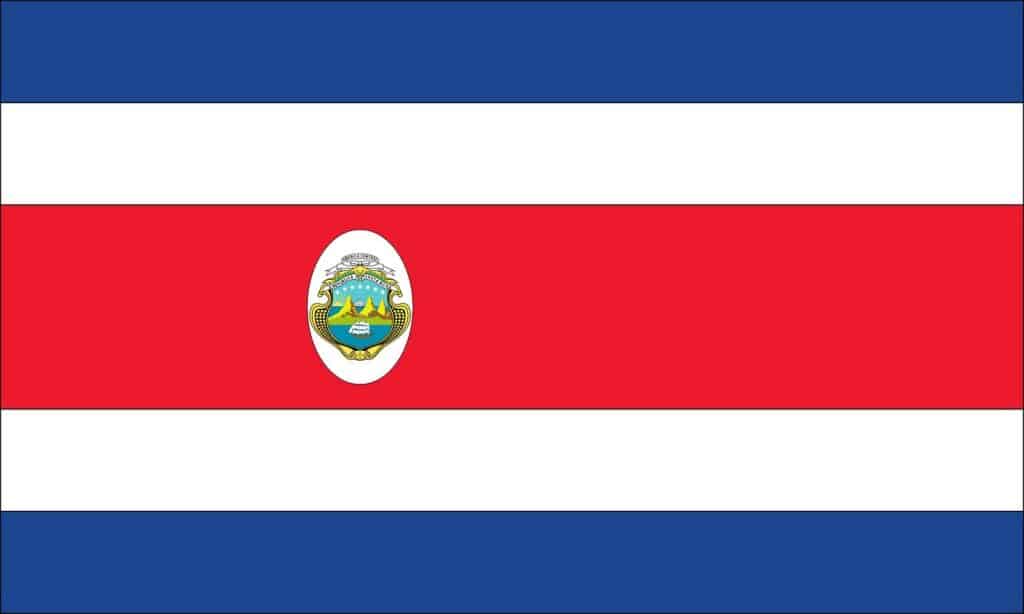Monopoly vs Monopsony: The difference (+examples)
If you are looking for the difference between a monopoly and a monopsony, look no further! In this article we […]
Read More »Become a successful marketing consultant: Learn more

If you have ever thought about doing business in Costa Rica, this is the article for you.
In this helpful article we will review 9 reasons why Costa Rica is good for business, with quality references where you can do further research from highly trusted resources.
Why is Costa Rica good for business?
Costa Rica is good for business, for at least these 9 reasons:
Not only is Costa Rica totally beautiful with great people and a wonderful culture, Costa Rica is a good place to do business.
As we get started, please enjoy this audio teleconference featuring Your Strategic Marketing Partner interviewing Leus Legal, a law firm from Costa Rica explaining many important items about Doing Business in Costa Rica:
Ok, let’s explore each of the 9 reasons why Costa Rica is a great place for business in a little more detail.

Costa Rica has long been a premier destination for travelers, vacationers, pensioners, business investment and international business expansion.
But is Costa Rica right for your business?
Well, with the country’s pro-business environment, skilled workforce, and excellent infrastructure Costa Rica is a favorite among foreign and local investors looking to do business in Latin America. Here are some of the reasons Costa Rica is a good choice for business:
Many people say Costa Rica's tax structure is favorable for some businesses. One reason is that it is a territorial tax system. That is, income made in the country or as a result of Costa Rica infrastructure is subject to tax.
Another reason people say the tax system is fair is that it is a simple tax system, with minimal taxes at the municipal level, if any.
The corporate tax rate is a scale, starting at 5% on the first CRC 5,286,000 (about USD $8500) and up to 30% for companies with gross income over CRC 112,170,000 which is about USD $181,000. This needs further clarification and information as there is a huge difference between gross income and net income.
Go here for a good resource to do currency conversions from the CRC to your currency.
For more information about Costa Rica corporate tax rates, PricewaterhouseCoopers (PwS) seems to do a pretty good job in explaining.
For the best clarification, it is suggested that you contact a local tax attorney, based in Costa Rica.
Depending upon your goals, if you are just getting started or have plans to operate a lean and mean organization, the corporate tax system seems fair.
Also, there is no tax on dividends or capital gains. This is a huge positive for many people looking to relocate, and clearly the government wants to attract retirees and investment. Additionally, there is a 13% value added tax (VAT) on the sale and imports of a lot of merchandise.
For more information about the VAT tax, KPMG seems to do a pretty good job in explaining.
But again, for best clarification, I would suggest contacting a local tax attorney in Costa Rica.
With their northern border shared with Nicaraugua’s southern border and Panama at their southern border, Costa Rica's democracy has its roots in the country's independence from Spain in 1821.
Since that time, Costa Rica has held several free and fair elections and has peacefully transferred power between different political parties. CIA.gov reports that only two brief periods of violence affected Costa Rica’s democratic development in the last 150 years or so.
The country has also avoided the military coups and civil wars that have plagued other countries in the region.
This stability has allowed Costa Rica to focus on economic development and poverty reduction, which has helped to improve the standard of living for its citizens.
Since the United States is its closest friend and largest trading partner, Costa Rica is well-known for not having a standing army and for relying on it to maintain national security.
It's with the long-standing political stability that the nation has experienced, and the close political and cultural relations it has with its neighboring country, that the Central American country can implement such a program.
CIA.gov reports that the standard of living in Costa Rica is relatively high and land ownership is widespread.
CIA.gov reports Costa Rica GDP of about $100 billion and World Bank reports GDP per capita at about $12,500. For comparison, the World Bank reports that GDP per capita in the US is about $69,000.
With that, Costa Rica is frequently lauded for the pro-business government policies that make it an attractive destination for businesses of all sizes.
Its government has a long-standing commitment to promoting economic growth and development. It has implemented policies that are conducive to business activity, such as low taxes, deregulation, and open markets.
These policies have helped Costa Rica to become a leading destination for foreign investment.
Costa Rica has many free trade agreements, is a member of CAFTA-DR, and has agreements with Canada, Chile, Trinidad and Tobago, Panama, the CARICOM countries, China, Singapore, Peru and the European Union.
For example, go here to review the Canada - Costa Rica free trade agreement.
In fact, if you are looking to export products to Costa Rica and are part of a CAFTA-DR member nation, specifically in the U.S., this may represent a good opportunity. The CAFTA-DR free trade agreement (FTA) eliminated most of the tariffs for non-agricultural imports. Trade.gov also reports that CAFTA-DR promises increased transparency in customs dealings, anti-corruption measures in government contracting and procurement, and strong legal protections for U.S. investors.
Additionally, here is another example of Costa Rica’s second largest trading partner, where they have a bilateral trade agreement with China. Go here to review the China - Costa Rica free trade agreement at China’s Ministry of Commerce FTA network.
In addition, Costa Rica has provided financial assistance to businesses that have faced difficulties, such as during the global financial crisis of 2008. The government has also created special economic zones that offer tax incentives and other benefits to businesses. These zones have attracted many multinational companies to invest in Costa Rica.
Costa Rica has a strong transportation infrastructure, with a well-developed network of roads, railways, and ports. This makes it easy for the transportation of raw and finished materials and to transport goods and services to and from Costa Rica.
It also has a good telecommunications infrastructure, with a high penetration of mobile phones and broadband internet to ensure businesses stay connected and communicate with customers and suppliers.
For example, World Bank reports that 81% of the Costa Rica population uses the internet. This is substantial, considering that they report that 91% of the U.S. population uses the Internet.
Additionally, its stable political environment and strong legal system also make the country safe and secure to do business.
Interestingly, if you have some extra time on your hands, here is a nice overview of the Costa Rica legal construct put together by the Law Library of Congress. The content links to resources about Costa Rica, its constitution; executive, legislative and judicial branches. Go here to review this section of the Library of Congress here.
The Costa Rican government has made a concerted effort to crack down on crime, and this has resulted in a decrease in the overall crime rate. In addition, the Costa Rican government has implemented several programs to improve public safety, which has further contributed to the low crime rate.
But, probably almost anywhere, crime does happen.
Here is a screenshot of what the US Embassy in Costa Rica says:
While it looks like the majority of crime is basic theft and some robbery, there are also some very scary events that have occurred. Go here to review what the US Embassy reports.
Additionally, in the International Homicides list reported by the World Bank staticians, they report Costa Rica as having 11 homicides per 100,000 people in 2020. For comparison, the United States suffered 7 homicides per 100,000 people in 2020, and Mexico had 28 homicides per 100,000 people in 2020.
Costa Rica is famous for its highly educated workforce. It has a high density of scientists and engineers due to the country's strong focus on education. Costa Rica spends over 6% of its GDP on education, which is more than any other country in the world. As a result, Costa Rica has a literacy rate of 96.3%.
This high level of education makes Costa Rica an attractive destination for businesses. Companies looking to set up operations in Costa Rica can be confident that they will have a highly skilled workforce to draw from.
Costa Rica has a fiber-optic network that reaches almost all of its populated areas, and its mobile phone and broadband penetration rates are among the highest in Central America. This infrastructure has been a key enabler of Costa Rica's economic growth, as it has allowed businesses to operate more efficiently and connect to global markets.
The Costa Rican government has been supportive of the telecommunications sector and has invested in infrastructure projects to improve the country's connectivity. In recent years, the country has also been a leader in adopting new technologies, such as VoIP and cloud computing.
Costa Rica is an attractive destination for businesses due to its location.
In fact, if you are based in Europe and you want to sell to the Latin America market or just Costa Rica, Costa Rica may be the location for you.
Costa Rica is an attractive destination for businesses due to its location. It's in Central America, with Nicaragua to the north, the Caribbean Sea to the northeast, Southeast being Panama, Ecuador to the south, and the southwest Pacific Ocean.
Being situated between North and South America makes it a convenient location for companies that conduct business in both regions. In addition, Costa Rica is close to major shipping routes, which can reduce business transportation costs.
Costa Rica is often lauded as a model for sustainable development. The Central American country has abundant natural resources, including forests, rivers, and beaches, which make it a good country for businesses.
Costa Rica is such a good location and with so much beauty that they have an internal mandate to promote Costa Rica as a destination. They prioritize a plan to develop tourism related infrastructure and to monitor and support the related business sector.
Go to the OECD library for more information about these policies.
However, Costa Rica also has a long history of environmental degradation. The country has lost over half of its forest cover since the 1950s because of logging, agriculture, and urbanization. This has led to soil erosion, loss of biodiversity, and increased flooding.
Costa Rica has made some progress in recent years in reversing this trend. The government has put in place several policies to promote sustainable development, including a moratorium on logging, incentives for reforestation, and the creation of protected areas.
You can see here that World Bank recently awarded them a payment for reducing carbon emissions.
These efforts help protect water sources that produce energy such as hydropower, which is used to generate electricity.
Costa Rica is a good option for businesses looking to expand their operations into Latin America. With its well-educated workforce, good infrastructure, and stable political and economic environment, you are assured of success in many business sectors.